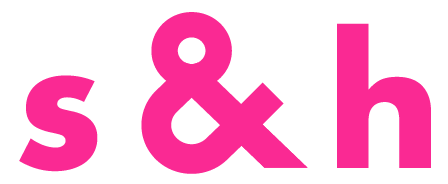Part 1: From Sick Care to Health Care with Robin Farmanfarmaian
“The best healthcare is the care that gets done,” as I learned from “How AI can democratize Healthcare: The Rise of Digital Care” by sparks & honey Advisory Board expert Robin Farmanfarmaian and Michael Ferro.
The transformation of healthcare driven by technological advances in AI and digital technologies hinges on humanizing tech through brand trust, peer-to-peer-influence and precision personalization, as it does on brilliant engineering and data science. This is great news for marketers.
Patient adoption is in part a marketing problem
Simple changes in the way healthcare messaging is communicated can be game-changing to drive awareness and create new business opportunities. “Patient adoption is in part a marketing problem. How are people to know these options exist?,” sparks & honey Advisory Board member Robin Farmanfarmaian said.
For example, the advent of ambient voice technologies, such as Amazon’s Alexa, the Google Assistant, and Apple's Siri helped grow audio data collection and reduce the error rate to less than 3%, which powered advances in health care through voice technology along with a myriad of other industries.
So, can AI tell if you sound sick?
“Absolutely,” said Robin. She pointed to biomarkers that use vocal patterns like pitch, tone, rhythm, and rate of breathing and coughing to diagnose a multitude of disorders.
“A company called Hyfe AI, for example, can detect, count and calibrate the number of times someone coughs on a daily basis. It's such a simple thing, but it’s so powerful. The tech can distinguish between just a ticklish throat, a whooping cough, a productive cough or a wheezing cough. All these recorded sounds go into forming a diagnosis, and (the tech) has the ability to metricize points on a disease trajectory, and track how you are responding to treatment over time, or whether your medication needs to be tweaked,” Robin explained.
That means people with a troubling cough can know when they should schedule a telemedicine consult with a physician. “The physician can rely on the data gathered over time to confirm patterns and make better-informed decisions than they ever could in seeing hundreds of patients for only minutes at a time.”
From sick care to health care
“The underlying theme of our book is the shift in healthcare delivery from the current system of centralized institutions concentrated in large urban areas, to the point of the patient and a digital point of care.” And AI is enabling this shift.
Robin highlighted how powerful it can be for AI-powered healthcare to reach people who are connected. “It enables the shift of healthcare from “sick care,” where you see a doctor after you’re already sick, to preventative health care, where you can catch an emerging condition quickly, intervene early and prevent serious illness.”
Following that is “continuous care” through ongoing monitoring of vital signs, 24/7 to consciously manage your ongoing health state. “You don’t need to be an economist to understand how massively this changes the cost base of health accessibility,” Robin added.
A day in the life of an early adopter
I asked Robin how a health-conscious person who embraces precision medicine and digital therapeutics might manage their health care plan, from today to 15 years into the future.
“You would definitely be wearing clinical-grade sensors that monitor your vital signs continuously, like an Apple Watch or the Omron blood pressure monitor on your wrist, recording your vital signs 24 hours a day, seven days a week. You will be collecting over 1000 different measurements a day just from vital signs- and you would know why they matter thanks to well-designed apps with clear language and calls -to-action.
You may have a vocal tracking app or wear a little microphone attached to your clothing that records your voice and analyzes your mood in real-time. Or, let’s say its flu season, or there’s a new Covid variant going around, the sensors will track your voice and breathing for the early onset of a respiratory infection. If detected, an app on your phone will alert you to have it checked. You then call up the eMed on-demand guide via your smart phone camera where the certified proctor will verify your identity and walk you through the point-of-care diagnostic test. If they have confirmed a positive test result, they will immediately book you a telemedicine consultation after which the right prescription for your respiratory condition is sent directly to your home,” Robin detailed.
“Being able to catch things at the earliest stages saves the patient discomfort and severity of illness, reduces impact on household and family members, workplace and colleagues, as well as reducing costs for patients, health care providers, insurance companies and the state. It’s a win-win; and all of what I described exists right now.
About Robin’s story:
If you’ve not read Robin’s first book, “The Patient as CEO: How Technology Empowers the Healthcare Consumer” (2015), you may wonder what drives her curiosity and passion for the transformation of the healthcare industry and the empowerment of the consumer. She explains: “As a teenager, I was misdiagnosed with an autoimmune disease. By the time I was 26, I’ve had 43 hospitalizations and 6 major surgeries, including the surgical removal of my large intestine. I was only 19 when I had a total colectomy with j-pouch, which my doctors considered a cure. My mis-diagnosed Inflammatory Bowel Disease (IBD) remained untreated, and my pain levels grew so severe, I was taking up to 80 mg day of methadone a day. My doctors said my only alternative was to have a morphine pump surgically inserted into my spine.
It was at that point that I decided I needed better answers. I fired my entire healthcare team, took myself off methadone, and began to take charge of my own health outcomes. I carefully rebuilt a new care team, was eventually successfully diagnosed with Crohn’s disease and prescribed Remicade IV medication, which resulted in remission…like overnight.
But it wasn’t just one doctor or one pharmaceutical that allowed me to return to living a full life – it was a combination of many innovations, organizations and healthcare professionals across the industry. And that is the reason I am devoting my life to educating and empowering patients – and healthcare providers, with an understanding of emerging medical science and technological breakthroughs to positively impact medicine and healthcare. My life goal is to impact at least 100 million patients worldwide, and that’s why anyone can download my e-books for only 99 cents on Amazon, the lowest they would allow me to do.
Stay tuned for the second part of Robin’s interview, where she will discuss consumer empowerment through the democratization of healthcare. Be sure to check out Robin on our AI in healthcare Culture Briefing.
Annalie curates and leads the sparks & honey Advisory Board. Thanks to an insatiable curiosity and genuine love for making deep heart-to-heart connections with people, she has built a community of interesting edge-dwellers, innovators and game-changers and is always making introductions to strengthen the bonds. She is based in France.


